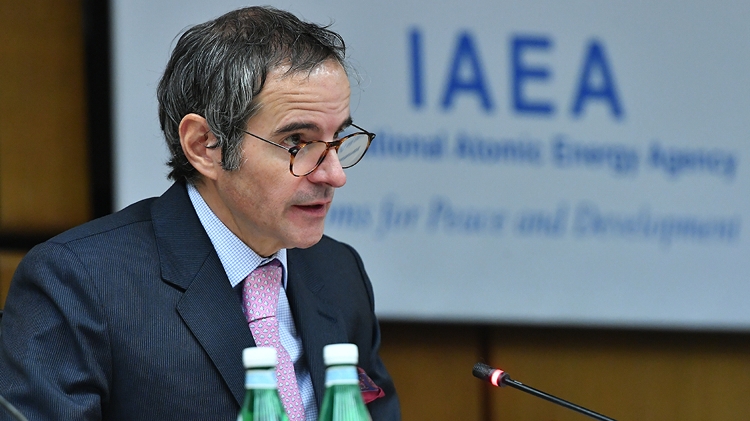The Director General of the International Atomic Energy Agency (IAEA), Rafael Mariano Grossi, briefed the IAEA Board of Governors on his recent efforts to ensure nuclear safety and security, focusing on Ukraine, Iran, Syria, and global development initiatives.
Nuclear Safety in Ukraine Conflict
Grossi described his recent visit to the Zaporizhzhya Nuclear Power Plant in Ukraine, where he assessed damage from an August fire at a cooling tower. Despite ongoing military conflict, he reaffirmed that nuclear sites must not be military targets, a message he conveyed during his subsequent visit to Russia, where he met with senior officials. Grossi emphasized that the IAEA continues to maintain open communication with both Ukraine and Russia, which remains a "positive factor" amid the challenging situation.
Engagement with Iran
Grossi also provided updates on engagement with Iran, noting that interactions with the new government have been “constructive.” He expressed optimism for future visits to Iran, stressing the importance of diplomacy to stabilize the nuclear situation. “Diplomacy and a clear framework are necessary for preventing instability,” Grossi added.
Progress with Syria
Grossi reported "gradual and prudent progress" with Syria after years of stalled communication. Two important technical missions have been completed, with a third planned soon.
Atoms for Development Initiatives
The Director General highlighted the IAEA’s contributions to global development, including its Atoms4Food initiative, launched in collaboration with the United Nations Food and Agriculture Organization (FAO). This program focuses on addressing global hunger through innovative and proven solutions, which will be a key topic at the upcoming IAEA 68th General Conference.
Grossi also emphasized the success of the Rays of Hope: Cancer Care for All initiative, which has expanded to include three new regional anchor centers in Argentina, Slovenia, and South Africa. The initiative strengthens cancer treatment capacities worldwide, with additional centers expected to join at the next General Conference.
The IAEA's environmental efforts, including the NUTEC Plastics project for combating plastic pollution and the Zoonotic Disease Integrated Action (ZODIAC) initiative, were also mentioned. ZODIAC’s global network of 128 National Laboratories supports the detection and response to zoonotic disease outbreaks.
Nuclear Energy and Climate Action
Ahead of the COP29 climate conference in November 2024, Grossi underscored nuclear energy’s crucial role in combating climate change, stating that “decarbonization cannot happen without nuclear energy.” He noted growing recognition of nuclear energy’s role alongside renewables, and highlighted the IAEA's ongoing work in advancing nuclear fission and fusion technologies. Grossi pointed to the establishment of the World Fusion Energy Group (WFEG), which will meet in Rome this November to foster global cooperation on fusion research.
Concluding his address, Grossi highlighted the IAEA's ongoing efforts, from preventing nuclear accidents to supporting global health and food security in developing countries.











